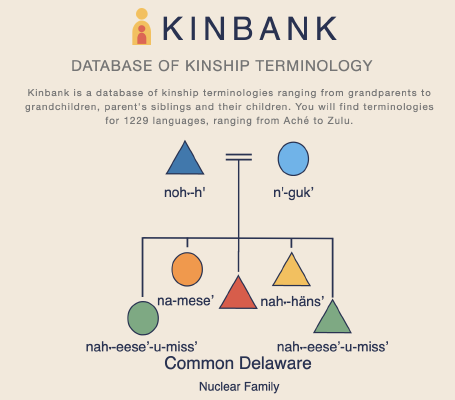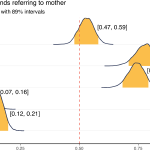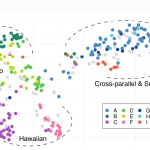Project: kinbank: Database of Kinship terminology

Kinbank is a database of kinship terminologies to be used for exploring cross-linguistic diversity in kinship organisation. The database includes 1229 languages and a set of 100 core kin types between Grandparents and Grandchildren, and between Parent’s siblings, and Parent’s siblings’ children. A major advantage of Kinbank is the focused language family sampling and sampling based on occurrence in existing anthropological databases (e.g. d-place.org), allowing us to test the relationship between languages and behaviour. This allows the use of phylogenetic methods to reconstruct the states of proto-kinship, account for common ancestry in models of kinship change, and test for correlated evolution between linguistic and behavioural patterns.
Publications from this Project:
Kinbank: A global database of kinship terminology.

Passmore S, Barth W, Greenhill SJ, Quinn K, Sheard C, Argyriou P, Birchall J, Bowern C, Calladine J, Deb A, Diederen A, Metsäranta NP, Araujo LH, Schembri R, Hickey-Hall J, Honkola T, Mitchell A, Poole L, Rácz PM, Roberts SG, Ross RM, Thomas-Colquhoun E, Evans N, Jordan FM. 2023. Kinbank: A global database of kinship terminology. PLoS One, 18(5), e0283218.
For a single species, human kinship organization is both remarkably diverse and strikingly organized. Kinship terminology is the structured vocabulary used to classify, refer to, and address relatives and family. Diversity in kinship terminology has been analyzed by anthropologists for over 150 years, although recurrent patterning across cultures remains incompletely explained. Despite the wealth of kinship data in the anthropological record, comparative studies of kinship terminology are hindered by data accessibility. Here we present Kinbank, a new database of 210,903 kinterms from a global …
Abstract PDF 10.1371/journal.pone.0283218 OverviewKin Against Kin: Internal Co-selection and the Coherence of Kinship Typologies..

Passmore S, Barth W, Quinn K, Greenhill SJ, Evans N, & Jordan FM. 2021. Kin Against Kin: Internal Co-selection and the Coherence of Kinship Typologies. Biological Theory, 16(3), 176–193.
Across the world people in different societies structure their family relationships in many different ways. These relationships become encoded in their languages as kinship terminology, a word set that maps variably onto a vast genealogical grid of kinship categories, each of which could in principle vary independently. But the observed diversity of kinship terminology is considerably smaller than the enormous theoretical design space. For the past century anthropologists have captured this variation in typological schemes with only a small number of model system types. Whether those types …
Abstract PDF 10.1007/s13752-021-00379-6